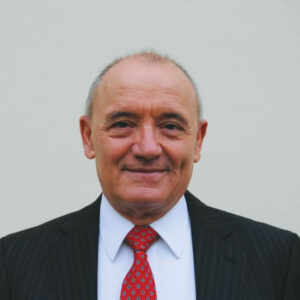Advent Devotional | Day 2: Jesus and Melchizedek
Исус и Мелхиседек
Then Melchizedek king of Salem brought out bread and wine. He was priest of God Most High, and he blessed Abram…
– Genesis 14:18–19a
The story of Melchizedek is an enigma and a mystery first for the Jews and then for Christians. Remarkably, the narrative of Melchizedek is placed right at the beginning of the story of the formation of God’s chosen people. God called Abram to follow Him and be a blessing to all families on the earth. He made a covenant with him and his descendants, and, in the midst of establishing a pattern of spirituality, community practices, and worship to shape a holy life as His people, God introduces Melchizedek and shows that He has more than one way of accomplishing His mission. There is assurance and warning in the story. Abram and his people are blessed for their righteous deed of restoring justice (Genesis 14:1-16). At the same time, they are shown that they are not the only agents of God’s grace and salvation.
Let us dive into the Melchizedek enigma with a closer look at Genesis 14:17–20 and then Psalm 110:4. The out-of-nowhere encounter between Abram and Melchizedek is a very intriguing story indeed! God is choosing and establishing a people for Himself, but instead of making their founding father the greatest hero, God humbles Abram by allowing an unknown and seemingly pagan king–priest to bestow blessings on him on behalf of “God Most High.” Melchizedek brings out bread and wine (a symbolic sign for Christians), blesses Abram, reminds him that God hands over his victory to him, and then receives tribute from Abram. All this occurs amidst rich symbolism. The name Melchizedek means “My King is righteous” or “The King of righteousness.” He is the king of the city-state of Salem (shalom) and thus king of “peace” (and king of the city later to become Jerusalem, David’s city). So, Melchizedek epitomizes and embodies the godly value of a reign of righteousness that brings and presides over peace. This is what Israel and her kings were supposed to be about (see Genesis 18:19) and what Jesus came to fulfill.
The psalmist, David, picks up the story of Melchizedek in Psalm 110. But here another detail of the story is emphasized, the priesthood of Melchizedek.
Considering that the Psalms were composed at the time of an established and divinely sanctioned Jewish priestly system, it is striking to be reminded that the Aaronic priestly arrangement is not the only one endorsed by God. There is another line of priesthood, and apparently an individual who will serve in it forever, in the order of that strange figure, Melchizedek.
We readers of the Scriptures are fortunate to have a record of the earliest Christian reflections on the Melchizedek story in the letter to the Hebrews (Hebrews 5–7). There Jesus’ priesthood in the order of Melchizedek is a central theme. For the author of Hebrews, Melchizedek is not an enigmatic character. He is a forerunner of Jesus. The two of them are both kings and priests, but the emphasis in Hebrews is on their sacerdotal function. Jesus’ priesthood is not an aberration or a mistake or a plan B. It follows a legitimate order established by God in Melchizedek. More than that, it actually supersedes the Levitical priesthood and has a superior high priest because it is eternal and Christ’s sacrifice of Himself is perfect and once-for-all (Hebrews 9:11-14).
The enigma that is Melchizedek is solved when we understand its fulfilment in the person and work of Jesus. He is the king of righteousness who brings and presides over a kingdom of peace that abounds with bread and wine. He is the eternal high priest whose perfect sacrifice fully, finally, and forever reconciles His people to God. And this is needed good news for the people in Eastern Europe in this troubled time. Millions in Ukraine and Europe are praying for God’s intervention in the midst of chaotic upheaval. The weaponry and mortars are not sufficient to stop the aggressor and free the land. The only and ultimate hope is for the king of righteousness to bring His kingdom of justice and peace in Ukraine, in Europe, and everywhere. Come, Lord Jesus, come!

Dr Parush R. Parushev
Sofia, Bulgaria
Dr Parush R. Parushev is a Langham Scholar and Langham- published author from Sofia, Bulgaria. He currently serves as Rector of St Trivelius Theological Institute in Sofia and is the Associate Director for Academic Development for Langham Scholars.